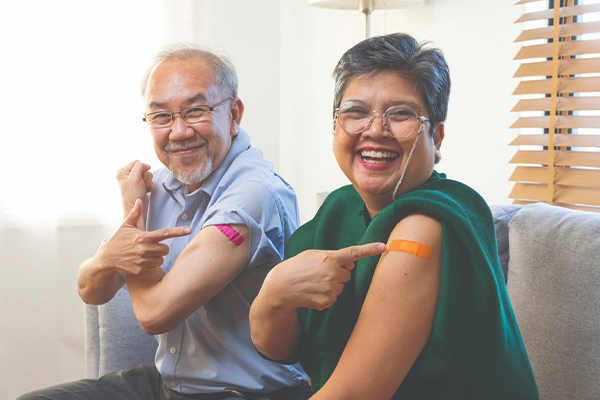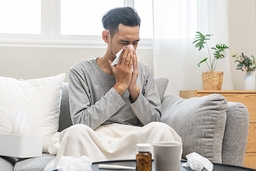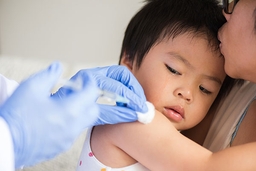Stay Protected: Must-Have Vaccines for Older Adults

As we age, staying healthy becomes even more critical, including through vaccination. Older adults are at higher risk for various infectious diseases, and vaccines can provide much-needed protection at this age.
The immune system typically weakens over time, so the body’s response to infection is not as strong as it was when we were younger. This is why vaccinations, including booster doses, are highly recommended to support a declining immune system.
The vaccine can prevent some diseases that commonly affect older adults, including
- Influenza (flu) can cause serious complications in older adults.
- Herpes zoster (shingles) is more common in older adults and can be very painful.
- Pneumonia: mainly caused by pneumococcal bacteria.
- RSV: a respiratory virus that can be fatal in older adults.
What are the vaccines for older adults?
Flu Vaccine
Flu — short for influenza — is a viral infection that attacks the respiratory tract and can cause symptoms such as fever, chills, sore throat, stuffy nose, muscle aches, and headaches.
Although often considered mild, the flu can be severe if it spreads to the lungs, especially in older adults.
As we get older, our immune systems weaken, making us more susceptible to severe complications from the flu, such as pneumonia. In severe cases, the flu can even be fatal in older adults.
The flu virus is highly contagious and continues to mutate, meaning that a person can get the flu more than once. The flu vaccine is updated yearly to reflect the types of flu viruses circulating.
People who are 65 and older and have chronic medical conditions, such as diabetes, heart disease, or lung disease, are advised to get an annual flu vaccine.
RSV Vaccine
Respiratory Syncytial Virus (RSV) is a common virus that usually causes mild symptoms, like a cold. However, in older adults, RSV infection can be much more serious and even life-threatening. RSV can cause complications such as pneumonia and respiratory failure.
Read more: Beware of RSV.
While many people recover from RSV with just rest, adults age 60 and older are at higher risk of developing severe symptoms, especially if they have:
- Chronic illnesses (such as heart or lung disease)
- A weakened immune system
- A history of hospitalization for a respiratory infection
The Centers for Disease Control and Prevention (CDC) even recommends vaccinating everyone age 75 and older against RSV.
Pneumonia Vaccine
Pneumonia and invasive pneumococcal disease (IPD) are serious threats to the health of older adults. They are caused by pneumococcal bacteria, which can spread through the air when someone coughs, sneezes, or breathes.
Pneumococcal bacteria can cause a variety of illnesses, including:
- Pneumonia (lung inflammation)
- Otitis media (middle ear infection)
- Sinusitis
- Pneumonitis (lung inflammation)
- Sepsis and meningitis (known as invasive pneumococcal disease/IPD)
Severe infections such as sepsis and meningitis can be life-threatening, especially in older adults and people with chronic conditions.
Older adults — especially those 50 and older — have weaker immune systems and are more susceptible to severe complications from pneumococcal infections. That’s why vaccination is highly recommended for this group.
The CDC recommends pneumococcal vaccination as follows:
Option 1: two-vaccine combination
Pneumococcal conjugate vaccine (PCV13 or PCV15)—one dose.
Followed by pneumococcal polysaccharide vaccine (PPSV23)—one year later or eight weeks in people with weaker immune systems.
Option 2: single vaccine
20-valent conjugate vaccine (PCV20)—one dose only, if available.
The above options effectively protect against a wide range of pneumococcal bacteria. Consult your doctor to decide the best vaccine for your medical condition.
Shingles Vaccine
Herpes zoster, or more commonly known as shingles, is a disease caused by the same virus as chickenpox.
If you have had chickenpox, the virus does not completely leave your body. It remains “sleeping” in your nerves and can reactivate when your immune system weakens, especially as you age.
Herpes zoster attacks your nerves and can cause:
- A burning, stabbing pain, tingling, or itching sensation
- A rash with fluid-filled blisters on one side of your body
- Pain that persists even after the rash has healed is called post-herpetic neuralgia (PHN).
PHN can be very disruptive, lasting for weeks to months, and is more common and severe in older people.
Shingrix is a vaccine recommended for healthy adults 50 years of age and older, even if you:
- Have had chickenpox
- Are you not sure if you have had chickenpox?
- Have had shingles
- Have received the older shingles vaccine (Zostavax).
The vaccine is given in two doses, 2–6 months apart, or if you have a weakened immune system, the second dose may be given 1–2 months after the first dose.
Important note: You should not get this vaccine if you are sick, have a fever, have shingles, have a weakened immune system, or have allergies to any vaccine component. Consult your healthcare provider first.
**
Don't delay vaccination—protect yourself and your loved ones today.
Aging is a regular part of life. However, the risk of severe sickness does not have to increase. With the proper vaccination, you can maintain your health, avoid dangerous complications, and stay active throughout your day.
GWS Medika is ready to help you get the best flu, RSV, pneumonia, and shingles protection. Contact us, consult your needs, and get the vaccination that suits your health.
GWS Medika—together, maintain your health throughout your life.



